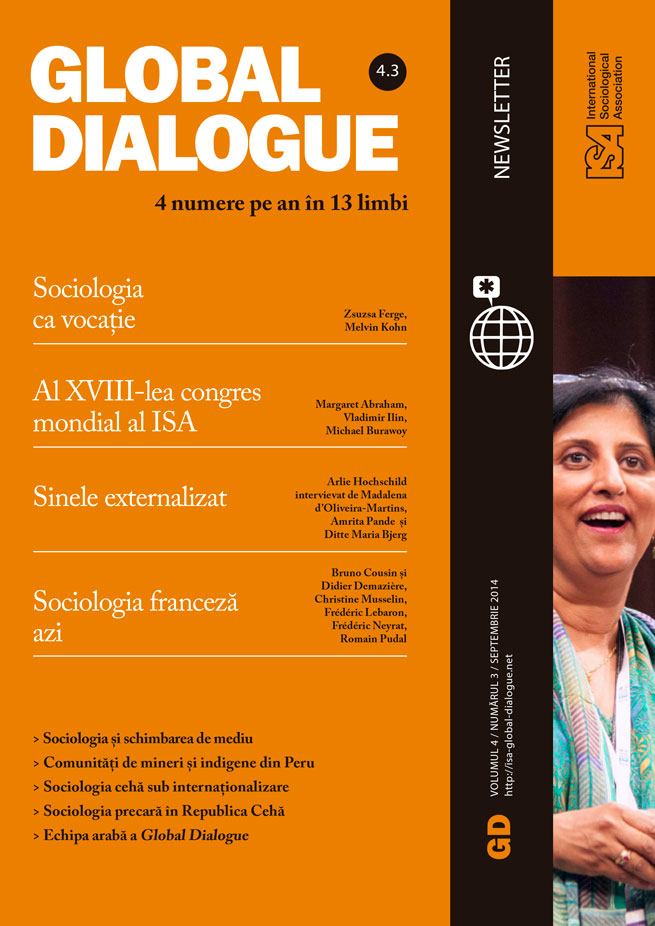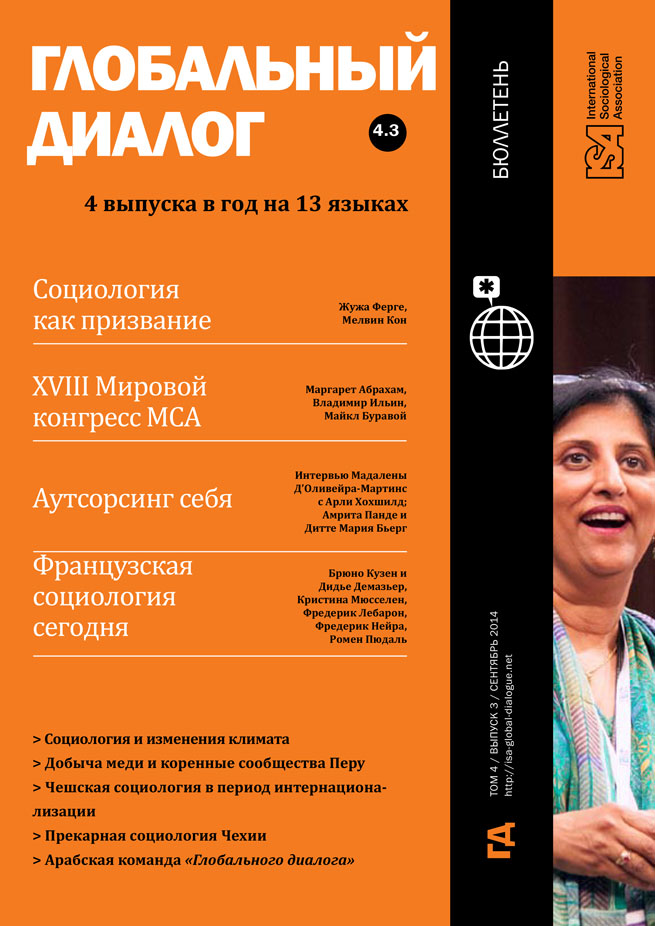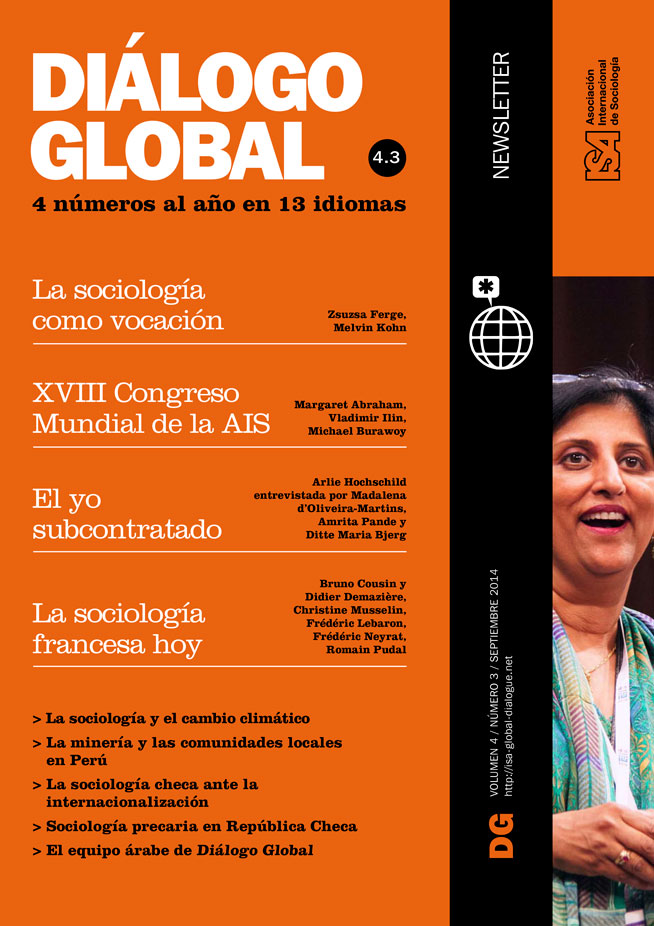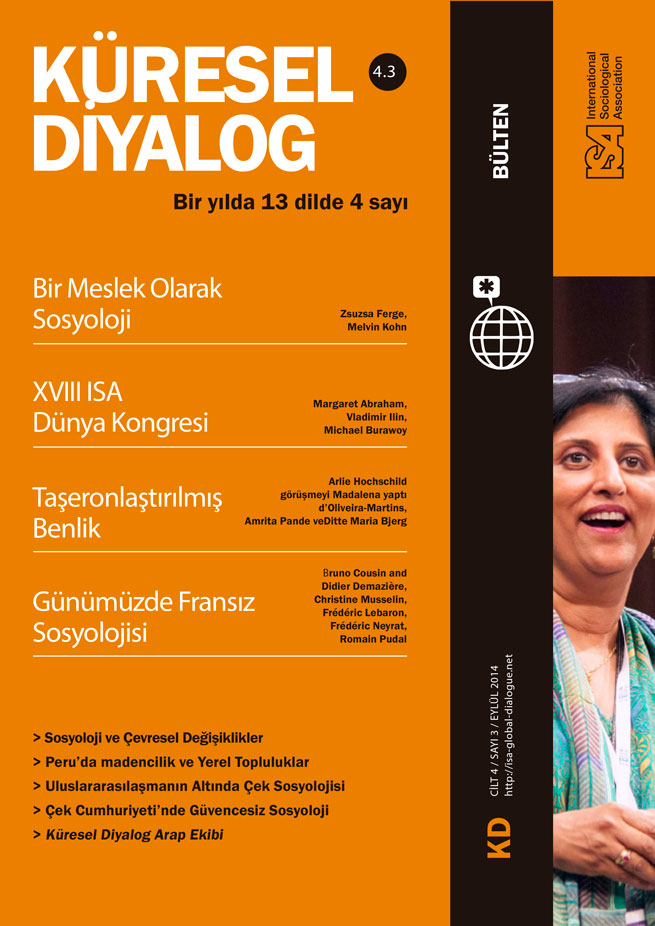Since the 1960s, French sociology has been the object of a sort of trial about its professional prospects. With the first massification of higher education, the number of students enrolled in sociology curricula increased dramatically. But, considered a “new” discipline compared to humanities, sociology aroused doubts in terms of openings, at a time when job opportunities (and therefore also the contents of the curricula) were seen mainly through the recruitment of secondary school teachers. Indeed, 50 years ago, sociology was not taught in secondary schools, but even after the introduction of economic and social sciences in school programs, and the creation of competitive entrance examinations to recruit teachers (CAPES in 1969 and agrégation of economics and social sciences in 1977), the links with the sociology curricula of the universities remain limited.
In addition, doubts concerning the career paths of sociology students were also driven by politics: some of the students protesting in May 1968 were sociologists. Those who followed Raymond Aron (The Elusive Revolution: Anatomy of a Student Revolt, Praeger, 1969) in its criticism of the “collective delirium” of the “May Revolution” saw their main cause in the “cluttering universities” and the “absence of job prospects” that ensued – a discourse regularly updated ever since by journalists and politicians. Sociology became emblematic of the absence of career options for humanities and social sciences university students – even if the French Center for Research on Qualifications (CEREQ) suggested that this be reconsidered in the light of actual experiences of graduates from both the licence and masters’ programs in sociology.
Nevertheless, it is at the doctorate level that the professional placement of sociologists is most interesting; or rather, the placement of the sociologist as a professional, which can provide insights on how the discipline is placed overall. One thinks immediately of enseignant-chercheurs or teacher-researcher jobs, as well as research jobs at large public institutions. Without a doubt, sociology as a discipline benefitted from the second massive expansion of higher education. Between 1984 and 2010, the number of teacher-researcher positions in sociology grew more rapidly than in other disciplines: the increase was 302% for sociology versus 213% for all disciplines. However, recent growth patterns have been less promising for sociology, as well as for other academic sectors. Generally speaking, research in France is in decline. University hires have dropped; in less than five years, the overall number of teacher-researcher hires plummeted by 25%, falling from 2,000 to 1,500. Similarly, the CNRS decreased its research hires from 400 to 300 in the same period.
Meanwhile, precarious working conditions have intensified, both in research and higher education teaching positions. A greater percentage of public research in France is funded through calls for proposals, namely through the French National Research Agency (ANR). “Postdoc” positions are created but they are precarious by nature. Moreover, universities are seeking to delay the hiring of statutory permanent teacher-researchers (with tenured, public positions). When the LRU law was passed in 2007, universities were allowed to make hires under private permanent contracts to ensure “teaching, research or teaching and research functions.” Since 2012, an increasing number of universities have adopted this strategy. Indeed, French public universities were granted “autonomy,” as the state partially withdrew from funding them – as Thomas Piketty showed in a recent article (see “Faillite silencieuse à l’université,” Libération, November 18, 2013). As a result, almost one fourth of universities, including internationally renowned centers, are on the brink of bankruptcy and relying increasingly on non-statutory positions that are cheaper and do not lead to long-term contracts.
Fortunately, the future of sociologists is not circumscribed to the academic sphere. Numerous research companies and consulting firms, which draw on sociological skills, have been created over the past few years, driven by increasing demand for applied research and evaluations. In both urbanism and planning, preliminary studies, usually conducted by interdisciplinary teams, are mandatory. Depending on the importance and objectives of a given project, sociologists may be included as part of the team. This is especially true of “urban renovation projects,” particularly when “sensitive urban areas” (ZUS) are involved. Program managers require assessments of the impact of planning projects in terms of urban mix between different social groups.
Another market for research companies and independent consultants is public policy evaluation. For example, in relation to health care, sociologists are asked to evaluate care work policies for seniors. Similarly, education policies, cultural policies or social policies are frequent objects of regular evaluations requested by different state authorities. Finally, businesses also often request research on the following topics: evaluation of psychosocial risks (stress, harassment, suicide, etc.), organization of work (reorganization, downsizing measures, relocation, etc.), fostering gender equality, and addressing discrimination within companies.
Sociologists are not the only professionals in the market for research and consultancy on these topics. Studies are often interdisciplinary. In addition, sociologists are in competition with other professionals who may claim to be sociologists – the title is not protected in France. Nevertheless, increased specialization is bringing some professional protection, for example through the creation of professional master programs focused on both the teaching of the sociological craft and on a specific sector. Mastering both quantitative and qualitative skills seems to be highly valued and sought-after, and a strong complement to an individual’s more specific areas of expertise (urban, health or social policies, etc.).
Some sociologists working at research firms hold doctoral degrees, and have decided to either temporarily or definitively quit academia given the condition of the academic job market. Nevertheless, there are strong ties between the two. Some professors and researchers support these firms by participating in their scientific committees. Similarly, sociologists working at research firms may also take on teaching positions at universities.
Finally, sociologists are not only those who teach and conduct sociological research both within and outside academe: we should be able to consider all professionals who have been trained in sociology at some point of their careers, as they bring a “sociological eye” to their professions. Unfortunately, we do not have the data to elaborate a discussion about this at a national scale.
Frédéric Neyrat, Université de Limoges, France <frederic.neyrat@gmail.com>













